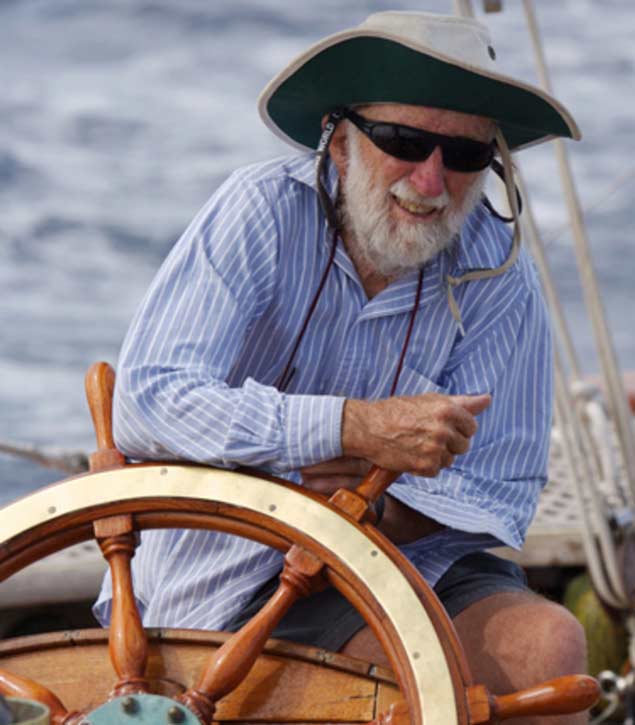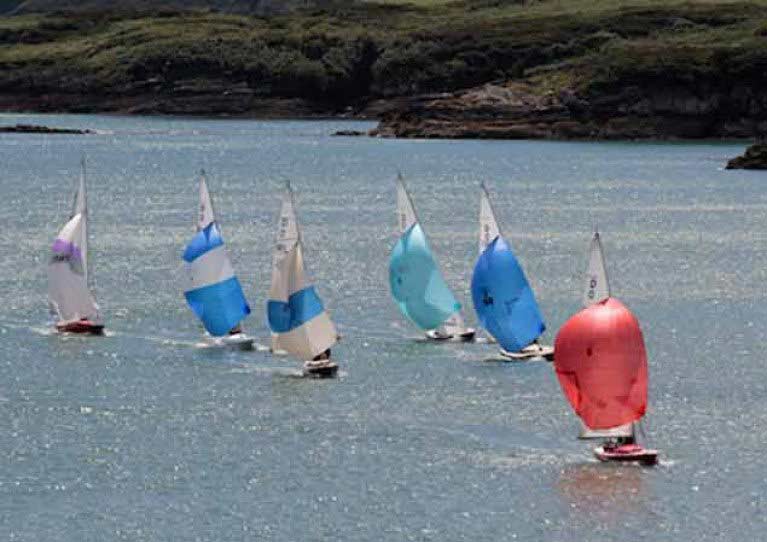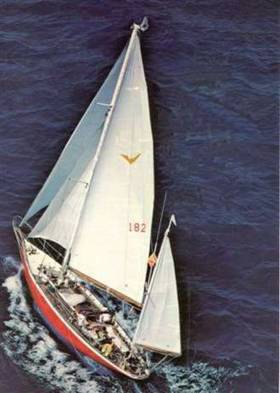Displaying items by tag: Iolaire
They say bad news travels fast. But the news that the 48ft 1905-built yawl Iolaire has been lost, after an inadvertent gybe in heavy weather drove her onto rocks – fortunately without loss of life or injury - off Ibiza on July 26th, has only been seeping slowly into international maritime awareness writes W M Nixon.
Iolaire had several owners, including ocean racing pioneer Bobby Somerset. But when the youthful yet already very experienced American sailor Donald M Street Jnr bought her in 1959 at St Thomas in the Caribbean, it was for only $100 dollars, as she had been deemed a write-off after being driven ashore on the beach because of a failed mooring shackle.
"The 48ft 1905-built yawl Iolaire has been lost, after an inadvertent gybe in heavy weather drove her onto rocks"
Some write-off…….Don soon had her sailing again, and continued the restoration over the years, giving her a yawl rig which was British-style John Illingworth masthead cutter forward of the mainmast, and American yawl with vast mizzen staysail down aft. Under this rig he cruised the length and breadth of the Caribbean with no auxiliary engine, writing pilot books for the islands, helping in the development of the charter industry, giving advice as a consultant in the marine insurance business, and becoming an internationally-recognised author on seamanship as well.
 Don Street in dress-down style for Caribbean sailing. Yet when he sailed the International Dragon Class Gypsy across hundreds of miles of open water from Glandore to Brittany, he managed to bring a set of immaculate and stylish clothes for shoreside gatherings at a Festival of Sail.
Don Street in dress-down style for Caribbean sailing. Yet when he sailed the International Dragon Class Gypsy across hundreds of miles of open water from Glandore to Brittany, he managed to bring a set of immaculate and stylish clothes for shoreside gatherings at a Festival of Sail.
Somehow he also found time to cross the Atlantic with Iolaire seven times, and took part in the Golden Jubilee Fastnet Race in 1975, while in high summer he became well-known in Glandore in West Cork where his wife Trish had inherited Rock Cottage, and he was among those involved in the development of the classic International Dragon class at this most beautiful harbour.
It was from Glandore that Iolaire was finally sold in 2011 after an astonishing 52 years of ownership, but Don Street’s involvement in sailing continues with winters in the Caribbean as a pilotage expert on large yachts, and summers with the Dragons in Glandore, where he sails the 86-year-old Gypsy.
It was in Glandore that he was told of Iolaire’s loss, and it was made more poignant by the fact that July 26th had been his 89th birthday. Yet in classic Don Street style, he very quickly pointed out that it wouldn’t have happened if the crew had been deploying one of his inventions, a gybe-preventer which could be made operational without any crewmember having to go forward of the mast.
But while Iolaire may be gone, Don Street still sails on, and currently he is engrossed in plans to take Gypsy to the International Dragon Class 90th Anniversary Regatta at San Remo in Italy from October 5th to 13th. There, her skipper will be the oldest helm from the Northern Hemisphere (he is globally bettered only by Australia’s 92-year-old Gordon Ingate), and Gypsy will certainly be one of the oldest boats.
We presume that Gypsy will be road-trailed to San Remo with the help of friends and family. Nevertheless the presence of the high seas has never prevented Don Street from getting Gypsy to some appropriate major international event under sail. Some years ago, he decided that Gypsy should take part in the Festival of Sail in Brittany, and he and a crew of two simply sailed there in this Dragon with her open racing-style cockpit.
 The classic International Dragons at Glandore are now one of Don Street’s main focal points of sailing interest. Photo Katherine Hayes
The classic International Dragons at Glandore are now one of Don Street’s main focal points of sailing interest. Photo Katherine Hayes
Not only that, but once they got there, her doughty skipper appeared ashore in a smooth style at variance with his usual Caribbean appearance. For under Gypsy’s foredeck for the entire voyage across the Celtic Sea and the mouth of the English Channel, there had been carefully stowed a tough waterproof plastic bag containing the skipper’s immaculate reefer jacket, the whitest of white shirts, a pair of classic sailing trousers in neat order, and his cherished Royal Ocean Racing Club tie.
When Gypsy finally reappeared back from Brittany in the mouth of Glandore Harbour, running in under spinnaker, she was very deservedly given the welcoming salute with a honorary salvo of the starting cannons from the Glandore Harbour Yacht Club.
























































